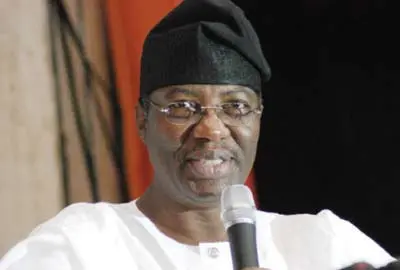Senator-elect representing Ogun east district, Otunba Gbenga, has hailed President Bola Tinubu for his courage and the political will to declare the petroleum subsidy regime over.
Dainel noted that Tinubu was the only President, who was “bold enough” to stop the petrol subsidy regime.
The former governor of Ogun state stated this while speaking in an interview with Arise TV on Thursday.
Recall that, during his inaugural speech as president, Tinubu had declared that the “fuel subsidy is gone,” adding that there is no provision for it in the budget beyond June 2023.
He said, “Subsidy can no longer justify its ever-increasing costs in the wake of drying resources.
“We shall instead re-channel the funds into better investment in public infrastructure, education, health care and jobs that will materially improve the lives of millions.”
Speaking Tinubu’s announcement on the fuel subsidy, Daniel said the subsidy regime had become unsustainable, adding that “everybody” is aware of the fact.
He said the subsidy is not just for Nigerians, noting that petroleum products are illegally smuggled to neighbouring West African countries.
Daniel said, “The thing I want our people to appreciate is that everybody has come to appreciate that the subsidy was not sustainable. But nobody was bold enough. And even the outgoing president said it would go after he had left.
“And somebody has come and said, let us stop deceiving ourselves. Another thing I have noticed, and many people have not spoken about, is that the biggest problem with the subsidy is that we are not just subsidising Nigerians but West Africa.
“And I do not see how that is sustainable anyway. And if there is no way of ensuring it stays within the shores of Nigeria then, which is also part of the problem of smuggling, then clearly, we cannot continue to subsidise the entire West African sub-region. We do not have such capacity.”
Since the announcement of the fuel subsidy, queues for petrol have greeted many parts of the country.
In Lagos, Ogun, and Abuja, it was observed that some filling stations were closed, while those that dispensed petrol had large queues of customers lining up for the commodity.
The situation has generated mixed reactions from stakeholders and citizens across the country.

